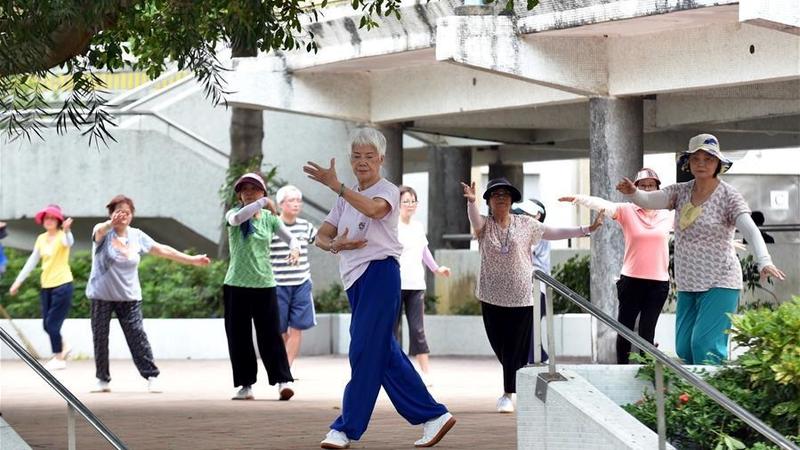 In this file photo dated July, 2020, people exercise at a park in Hong Kong, South China. (PHOTO / XINHUA)
In this file photo dated July, 2020, people exercise at a park in Hong Kong, South China. (PHOTO / XINHUA)
A recent survey found that over 53 percent of Hong Kong adults do not meet the level of physical exercise recommended by the World Health Organization (WHO), which is at least 150 minutes per week of moderate to vigorous exercise.
For the survey, conducted by the Hong Kong Special Administrative Region government and the Chinese University of Hong Kong, over 8,000 residents covering different age groups were interviewed between July 2021 and December 2022.
The elderly, particularly those between the ages of 60 to 70, complained that bad weather prevented them from being able to meet the WHO’s recommendations for exercising
The survey results were announced on Friday. According to the survey, 53 percent of male interviewees said their lack of exercise was due to tiredness, rather than laziness.
READ MORE: Report: HK teens suffer poor levels of physical fitness
The survey also found that about 60 percent of children aged 7 to 11, and about 50 percent of adolescents aged 12 to 16, do not meet the physical exercise requirements that the WHO has set for them. They cited muscle soreness caused by exercise and bad weather as the main reasons preventing them from doing enough physical exercise.
Also, parental influence acted as an additional factor in children not getting the recommended minimum amount of exercise.
The elderly, particularly those between the ages of 60 to 70, complained that bad weather prevented them from being able to meet the WHO’s recommendations for exercising.
The survey also found that among adults participating, 26 percent of males and 34 percent of females were centrally obese, while 31 percent of males and 22 percent of females had high blood pressure.
READ MORE: Cultivating an immersive ‘boutique’ fitness trend
According to a government statement issued on Friday, the overall findings of the survey show that most physical fitness performances were generally better than those recorded in a similar survey taken a decade ago.
However, measures of the muscular endurance of children and the muscular strength of adolescents were poorer than those in the previous survey.
The new survey recommends that children receive more muscular endurance training and adolescents do more muscular fitness exercise, such as box jumps, rope skipping and long jumps in order to enhance their physical fitness.


